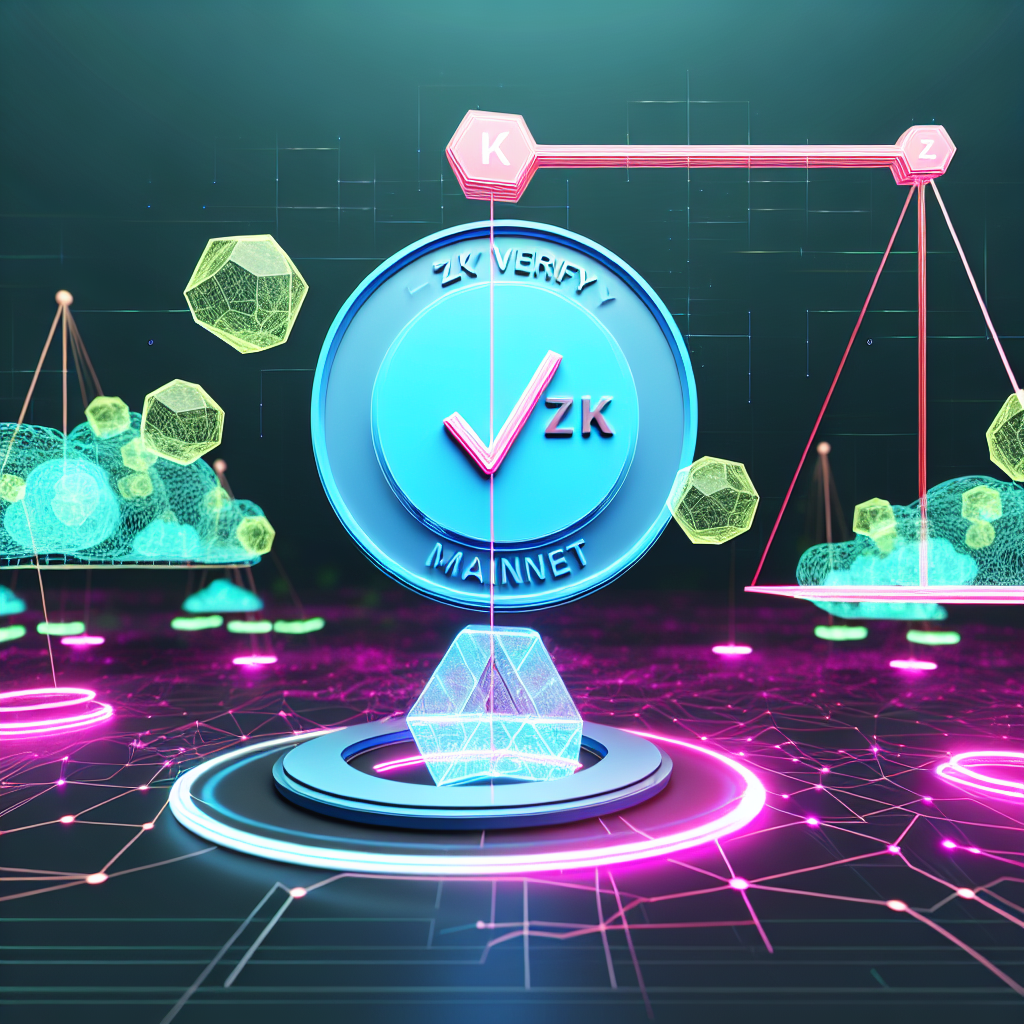Horizen Labs, a platform specializing in zero-knowledge cryptography, is launching its dedicated layer-1 blockchain aimed at private data verification.
ZkVerify, a new layer-1 blockchain conceived for zero-knowledge proof (ZK-proof) verification, announced its mainnet deployment on Tuesday.
“ZkVerify’s objective is to eliminate the economic and technical obstacles to ZK adoption,” stated Horizen Labs CEO and ZkVerify founder Rob Viglione in a conversation with Cointelegraph.
“Although verification is often perceived as the ‘least expensive’ segment of the ZK value chain, it remains excessively costly and inefficient for real-world scalability,” Viglione noted.
What is ZKP verification?
ZKP verification is a cryptographic technique that enables one party to substantiate a claim to another without revealing the underlying information or data. A typical illustration is proving age eligibility for a service without needing to disclose full ID or personal details.
With an estimated ZKP volume of around $100 million and 4.4 billion proofs by 2025, the ZK proving market is projected to grow to $1.5 billion by 2030, according to data from key industry platforms like Chorus, Aligned, and Horizen Labs.
“Currently, numerous chains and applications may face slowdowns or higher costs because verifying those proofs on Ethereum or other chains can be significantly more expensive,” Viglione remarked.
According to zkVerify, ZKP verification on platforms like Ethereum can incur costs of up to $60 per proof during peak congestion, with verification consuming as much as 300,000 gas units. zkVerify assures a cost reduction of at least 90% compared to direct verification on layer-1s.
“Heavy math instead of original app or chain”
To lower verification costs, zkVerify offers a specialized verification layer by decoupling proof verification from settlement on layer-1s.
“zkVerify verifies a ZK-proof by performing the heavy computations instead of the original application or chain,” Viglione explained to Cointelegraph, adding:
“The original chain transmits proof and inputs, directs them to the appropriate checker, validates them, and records either a success or a failure. Other applications or chains then interpret that outcome instead of recalculating the mathematics, transferring the computational load to zkVerify, which reduces both time and expense.”
Decentralized ID, gaming, DeFi lending among use cases
Highlighting practical zkVerify applications, Viglione mentioned decentralized ID, validated trading predictions, DeFi lending, gaming, and more.
“The simplest way to engage with zkVerify is through our relayer interface, which operates like an API and is continually expanding in functionality,” he stated, adding that the blockchain “functions seamlessly in the background,” ensuring users do not need to actively consider its mechanics.
Related: Vitalik criticizes EU’s Chat Control: ‘We all deserve privacy and security’
He also emphasized zkVerify’s ability to authenticate various proof types with its modular architecture, alongside multichain flexibility, enabling teams to verify once and certify for Ethereum, Base, Arbitrum, Optimism, and more without vendor lock-in.
ZkVerify’s mainnet launch follows the Ethereum Foundation’s announcement of plans to incorporate its ZK Ethereum Virtual Machine (zkEVM) directly into its layer-1 blockchain within a year.
This planned integration aims to enact significant enhancements in zkEVM’s block execution, allowing validators to verify multiple proofs from different zkVMs rather than re-executing block transactions.
Magazine: Can privacy survive in US crypto policy after Roman Storm’s conviction?

